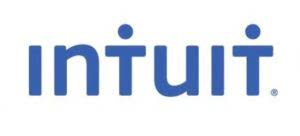
When you do so, you’ll be in control of the different areas of your business and could save some money in the long run. The statement of cash flows is especially important if you engage with any financing activities, such as investments or loans. You should review all these items ecommerce bookkeeping to determine the overall financial health of your company. Make sure you understand what needs to be done with your books on an annual basis so that your online business can run efficiently. Technology is ever-changing, so your best practices will need to change with it.
- Wave Accounting is a free accounting software that’s designed for small businesses.
- It also involves adopting tools and technologies that simplify data entry, categorization, and reconciliation.
- Now that you know the bookkeeping and accounting basics for your ecommerce store, you can feel confident knowing exactly where to begin.
- In addition, you should open a business bank account specifically for expenses and connect the account with an accounting platform to align every expense.
Keeping your records straight and accurate ensures your business operates efficiently and legally, too. Proper documentation will help you keep track of all the financial aspects of your business. This includes transactions, financial reports, accounting transactions, and more. Without the necessary steps, startups can experience cash flow issues and struggle to identify where money is going.
Best Bookkeeping Practices For E-commerce Businesses In 2022
An accounting program can track how many units were sold or if you’ve turned a profit. Of course, the bookkeeping process for ecommerce includes many factors and variables. Double-checking all recorded transactions with bank and credit card statements each month is a good practice to minimize the risk of bookkeeping errors. It’s important, however, to remember that bank and credit card statements do not replace good bookkeeping. Banks and credit cards can also sometimes make mistakes, so it’s important to have your own record of your invoices and receipts. Bookkeeping has some overlap with accounting because both involve preparing financial statements and records, but an accountant’s job is much more analytical than that of a bookkeeper.

It also includes tracking customer returns, a convenience that can both enhance customer loyalty and cause a bookkeeping headache. Improperly tracked, one return can throw off your sales, inventory, expenses, forecasting, and sales tax records all at once. The goal of bookkeeping is to show you the financial picture of your business, balance your accounts, and improve cash flow management in a strategic way. It helps you understand where your money is going so you can make informed decisions. For instance, cash flow allows you to understand the amount of your liquidity. With efficient bookkeeping, small business owners can identify tax deductions or apply for a business loan.
Understanding Ecommerce Accounting
Statista reports that the eCommerce market volume is projected to reach $6.35 trillion by 2027, with a projected amount of 5.29 billion users. The eCommerce market’s expected growth unlocks plenty of opportunities for businesses to capitalise on this substantially lucrative industry. Tracking inventory can be challenging and involves regular monitoring changes in inventory (especially when refunds take place). Understand cross-border tax implications such as VAT or GST, ensuring compliance with each country’s tax regulations. Then add the total costs together to get one sum, and divide that sum by the total number of units in your inventory. Purchasing a domain name and hosting, setting up the website and store itself are all very important steps to take, but without sound financial planning, your store won’t gain much traction.